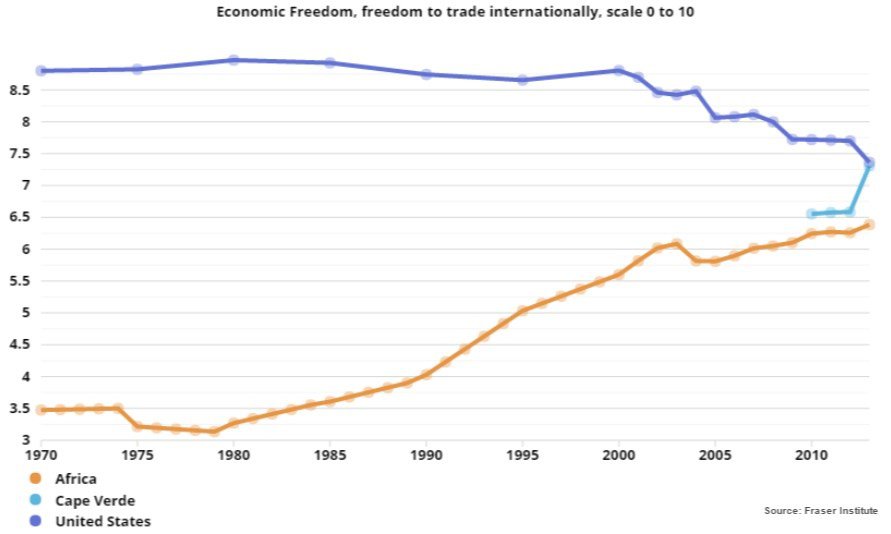
Recently, the Washington Post published an article wherein a connection was drawn between recent improvements in living standards for Cape Verde and recent efforts to build more roads. While there is a correlation between the development of new roads in the country and a decrease in the poverty level, it is hard to believe that infrastructure has brought Cape Verde out of poverty and into prosperity.
One must be careful in any discipline about looking at correlations and assuming cause and effect; finance and economics are no different. In fact, there are some spurious correlations, which one can only muse at even considering causation.
But if infrastructure is not the cure to poverty, then why has Cape Verde seen living standard improvements in recent years compared to other African countries, such as Liberia? One theory would be to look at how their governments operate. While both countries are considered democracies, the government in Liberia has significantly more corruption than the government of Cape Verde. This corruption adds a great deal of unnecessary cost to many products, which causes many citizens of Liberia to be unable to afford basic needs. In Cape Verde, there is not only less corruption, there is also more economic freedom. This allows for free trade to occur, which in turn produces more affordable products. In fact, Cape Verde’s economic free trade levels are rising rapidly, exceeding other African nations and even meeting the economic freedom of the United States, which is falling. And what about the infrastructure correlation? What we find as more plausible is that those infrastructure improvements were made as a result of the economic prosperity of the individuals. This is because all wealth is built in the private sector; government merely reallocates and redeploys that wealth.


recent comments